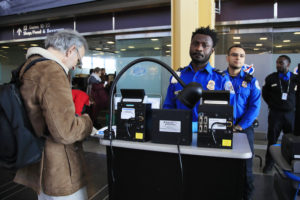Attempts to Protect Privacy Have a Long History
There are a growing number of privacy tools available today, but efforts to keep personal information safe are nothing new.
Online privacy is on everyone’s mind these days after the leaks about the NSA’s surveillance programs. Gone are the days when simply clearing cookies and browser history could satisfy users’ concerns about who sees their data and for what purposes. Fortunately there are a growing number of privacy tools available today, but efforts to keep personal information safe are nothing new.
Based on data collected from an archiving tool that crawls the Web for screenshots, the Electronic Privacy Information Center published a list of privacy tools for the public that date as far back as 1997, just six years after Phil Zimmermann created PGP, the most widely used email encryption software in the world. Among other privacy tools available in the late ’90s were anonymous surfing, disk-erasing programs, encryption tools (telnet, disk, Web, email and files) and voice privacy tools. By the early 2000s, a market opened up for privacy policy generators, password generators and secure instant messaging.
Such privacy protections don’t come without a fight and a look back at history shows the government has provoked plenty of them. After officials started opening mail in search of banned lottery materials, the Fourth Amendment got its first extension in 1878 via the court case Ex Parte Jackson, which established the guarding of letters and sealed packages from inspection without a warrant. After the FBI tapped and recorded the conversations that gambler Charles Katz had in a phone booth in the mid-1960s, he successfully argued the recordings were obtained unconstitutionally, which added the “reasonable expectation of privacy” bit to the amendment.
Breaching the privacy of citizens does more than generate anger at the government. United Nations Special Rapporteur Frank La Rue called for closer scrutiny of government surveillance efforts in a report released in June. In an interview that same month with the Open Society Foundations, La Rue said state surveillance is legitimate in certain cases, but giving police and security authorities the right to monitor every line of communication would be dangerous for democracy.
“Security comes from the possibility of dissent,” La Rue said. “Security comes from public debate and opinions and from everyone’s views being represented and everyone’s privacy being respected. Citizens have to protect themselves, their privacy, their communications, and all of their rights.”
The beauty of the privacy tools that exist today and undoubtedly have yet to emerge is that they are free. What were these privacy tool providers thinking when they created them for public use? They probably knew that security concerns would arise as quickly as technology changes. And though laws have not caught up with technology yet, it doesn’t mean people can’t take privacy into their own hands.
— Posted by Rosa Trieu.
Your support matters…Independent journalism is under threat and overshadowed by heavily funded mainstream media.
You can help level the playing field. Become a member.
Your tax-deductible contribution keeps us digging beneath the headlines to give you thought-provoking, investigative reporting and analysis that unearths what's really happening- without compromise.
Give today to support our courageous, independent journalists.






You need to be a supporter to comment.
There are currently no responses to this article.
Be the first to respond.